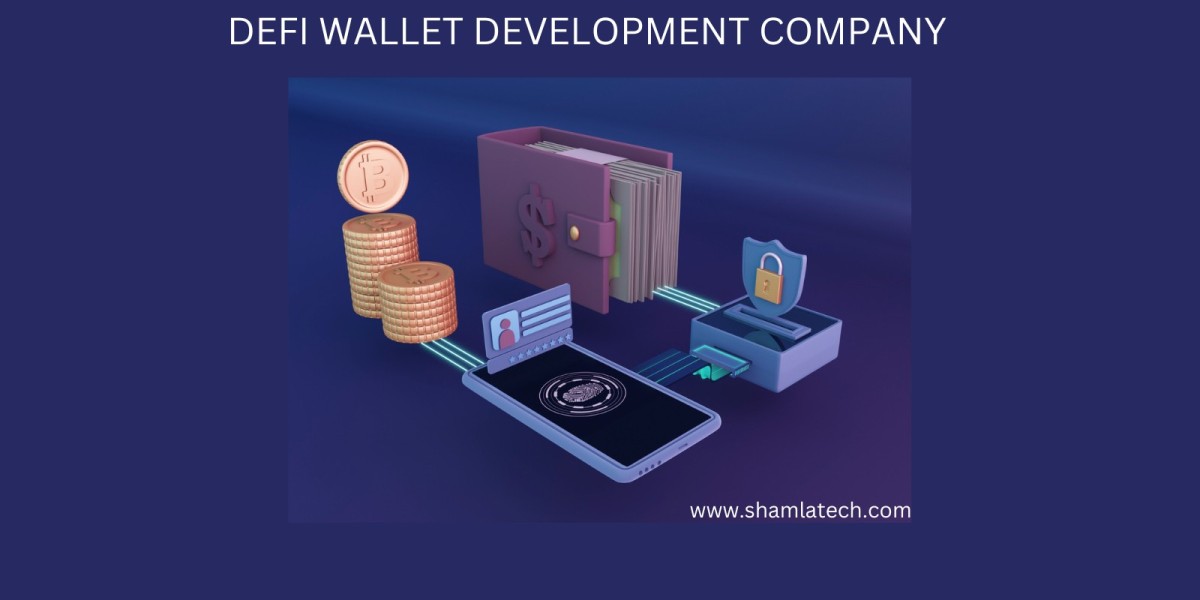What is a DeFi Wallet?
A DeFi wallet is a digital wallet that is purposefully built to facilitate seamless interactions with decentralized finance protocols. It allows users to securely store, send, & receive various cryptocurrencies and tokens used within the DeFi ecosystem. Unlike traditional wallets provided by centralized exchanges, DeFi wallets provide users with complete control over their funds and private keys. They empower individuals to be their own bank and make financial decisions without the need for intermediaries. DeFi wallet development includes various components like key management, a user-friendly interface, integration with DeFi protocols, transaction management, robust security features, compatibility with various blockchain networks, token management, and gas fee management.
Key Features of a DeFi Wallet Development
DeFi (Decentralized Finance) wallets are designed to provide users with secure, non-custodial access to their digital assets and enable them to interact with various decentralized applications (DApps) and protocols in the DeFi ecosystem. Here are some key features to consider in a DeFi wallet development:
- Non-Custodial: A DeFi wallet should be non-custodial, meaning the users have complete control over their private keys and funds. The wallet should not hold or control the user's assets, ensuring a trustless environment.
- Multi-Chain Support: DeFi operates across various blockchain networks like Ethereum, Binance Smart Chain, Polkadot, etc. Supporting multiple chains allows users to access a wide range of DeFi protocols and assets.
- Asset Management: The wallet should support a wide range of tokens and cryptocurrencies, enabling users to manage and store different assets within a single interface. It should provide features like balance tracking, transaction history, and token swapping.
- Integration with DeFi Protocols: A DeFi wallet should integrate with popular DeFi protocols, such as decentralized exchanges (DEXs), lending platforms, yield farming platforms, and more. This integration enables users to easily interact with these protocols directly from their wallet.
- Wallet Connect: Integration with Wallet Connect or similar standards allows users to connect their wallet to various DApps, enabling seamless interaction with decentralized applications without compromising security.
- User-Friendly Interface: It is essential for the wallet to feature an intuitive and user-friendly interface that enables effortless navigation and efficient management of users' assets. Features like transaction confirmation prompts, QR code scanning, and push notifications to enhance the user experience.
- Security Measures: Security is of utmost importance in a DeFi wallet. It should implement robust security measures, such as encryption of private keys, biometric authentication, two-factor authentication (2FA), and hardware wallet integration. Regular security audits and updates are crucial to maintain the wallet's integrity.
- Gas Optimization: DeFi transactions require users to pay network fees or gas. A well-designed DeFi wallet should provide options for users to adjust gas fees or optimize gas usage to ensure cost-efficient transactions.
- Backup and Recovery: Implementing a secure backup and recovery mechanism is essential to protect users from losing their funds. Wallets should provide users with mnemonic phrases or seed phrases for wallet recovery in case of device loss or failure.
- Community Support: A vibrant community of users and developers is crucial for the growth and adoption of a DeFi wallet. Providing support channels like documentation, forums, and community chat groups allows users to seek help, share knowledge, and provide feedback.
It's worth noting that these features can vary depending on the specific requirements and target audience of the DeFi wallet.
Why Shamla Tech is the best DeFi Wallet Development Company?
Shamla Tech is a leading DeFi Wallet Development Company that offers top-notch DeFi Wallet Development Solutions and Services. With their expertise in Decentralized Finance Wallet Development, they stand out as one of the best choices in the industry. They have a team of skilled developers who specialize in blockchain and decentralized finance technologies, ensuring the development of secure, robust, and feature-rich wallets. Their DeFi wallet development services encompass all key aspects, including non-custodial architecture, multi-chain support, stringent security measures, and more. Shamla Tech's expertise, comprehensive DeFi wallet development services, and customer-centric approach make them the best DeFi Wallet Development Company to consider for businesses and individuals seeking top-quality solutions in the decentralized finance space.



